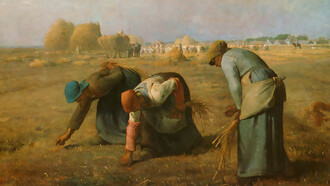On October 21, 2025, people in Uzbekistan celebrated the 36th anniversary of the Law on the State Language, which granted Uzbek official status in 1989.Today, around 35 to 40 million people speak Uzbek worldwide, and it is taught at a growing number of universities and cultural centers across different countries. From its ancient roots to modern reforms, the Uzbek language remains central to the identity and future of Uzbekistan.
Uzbek is one of the members of the Turkic linguistic family. Other Central Asian languages share many similarities with Uzbek, and Uyghur is considered the closest language to it. As the official state language of Uzbekistan, it unites more than 38 million citizens at home, while millions more speak it across Afghanistan, Tajikistan, Kazakhstan, Kyrgyzstan, Russia, and beyond.
Unlike many languages that are shrinking, Uzbek is expanding. Apart from the population increase in Uzbekistan, global interest in learning this language is growing. From the U.S. to South Korea, universities have launched Uzbek studies programs. The demand for the Uzbek language is rising for several reasons. Firstly, Uzbekistan’s economy is opening to the world, attracting investors, students, and tourists who want to connect with locals in their own language. Moreover, Central Asia, one of the least represented regions of the world, is gaining strategic importance globally, which is also increasing the interest for this language.
The history of Uzbek dates back more than a thousand years. The earliest stage is the Old Turkic language, used from the 8th to 10th centuries. In this period, the famous Orkhon inscriptions were created.
By the 11th–14th centuries, Turkic languages developed further. Scholars like Mahmud Kashghari compiled “Devonu lugʻatit-turk” (Collection of Turkish Vocabularies). Other classics of this era include “Qutadgu Bilig” by Yusuf Khos Hajib and “Hibatul Haqoyiq” by Ahmad Yugnaki.
From the 15th to the 17th centuries, the Old Uzbek or Chagatai literary language reached its golden age. Great poets and thinkers like Alisher Navoi, Lutfiy, Babur, Mashrab, and Furqat produced timeless works. Navoi, in particular, elevated Uzbek to a refined literary language. His famous treatise “Muhokamat-ul-lugʻatain” (Debate of Two Languages) argued that Uzbek, often referred to as Chagatai in that era, was as rich and expressive as Persian or Arabic. Navoi also wrote one of the hardest literature genres, “Khamsa,” in the old Uzbek language, demonstrating the richness and strength of this language.
By the late 19th century, the modern Uzbek literary language took shape. Newspapers like Turkiston Viloyati Gazeti and new schools spread its use. Despite the Soviet era’s challenges, when the Russian language was enforced and Uzbek was taught with the Cyrillic alphabet, Uzbek survived and continued to grow. Later, poets like Mukimiy, Furqat, and Hamza Hakimzoda Niyoziy brought modern themes to literature. In the 20th century, writers such as Abdulla Qodiriy and Abdulla Oripov gave the language new life through novels and poetry that spoke to the people. In 1989, after continuous public demand and the support of Islam Karimov, who later became Uzbekistan’s first president, the Law on the State Language officially recognized Uzbek as the language of the nation.
After Uzbekistan gained independence in 1991, Uzbek continued to serve as the state language, but October 21 was formally declared Uzbek Language Day only in 2020, in honor of the 1989 law. Another major move was the transition from the Cyrillic alphabet to the Latin one with the aim of aligning the language with global standards.
President of Uzbekistan Shavkat Mirziyoyev has stressed that language is the soul of the nation. Under his leadership, major reforms have been introduced to promote and modernize Uzbek. In 2020, President Shavkat Mirziyoyev delivered his speech in the Uzbek language at the United Nations General Assembly — one of the first times an Uzbek leader addressed the UN in Uzbek.
New schools, universities, and media outlets now operate in Uzbek. The Tashkent State University of Uzbek Language and Literature, named after Alisher Navoi, trains specialists and promotes research in areas like folklore, dialectology, and Turkology. Universities and academic institutions are consistently studying the Uzbek language and publishing new dictionaries.
Abroad, “Friends of the Uzbek Language” clubs are active in embassies and cultural centers, teaching and promoting the Uzbek language to foreigners and Uzbeks abroad.
The Department for the Development of the State Language was founded at the Cabinet of Ministers in 2019 during the 30th anniversary of the 1989 law. The department supports researchers studying the Uzbek language and implements various projects to promote the state language in the country and abroad.
Uzbek is also entering the digital world: new online dictionaries, mobile apps, and e-learning platforms are being created. Moreover, with the support of Wikipedia and the Youth Affairs Agency of Uzbekistan, new projects have been implemented to train volunteers to enrich Uzbek Wikipedia. According to 2024 data, the number of Wikipedia articles in Uzbek reached nearly 294,000.
Language is more than a tool for communication. It is a symbol of identity and pride. Uzbek has survived many challenges and globalization pressures. Today it brings together more than 130 nationalities within Uzbekistan and connects millions of speakers worldwide.















